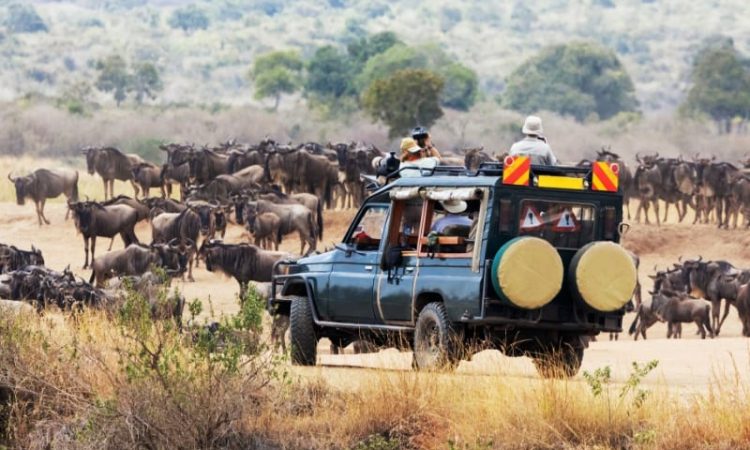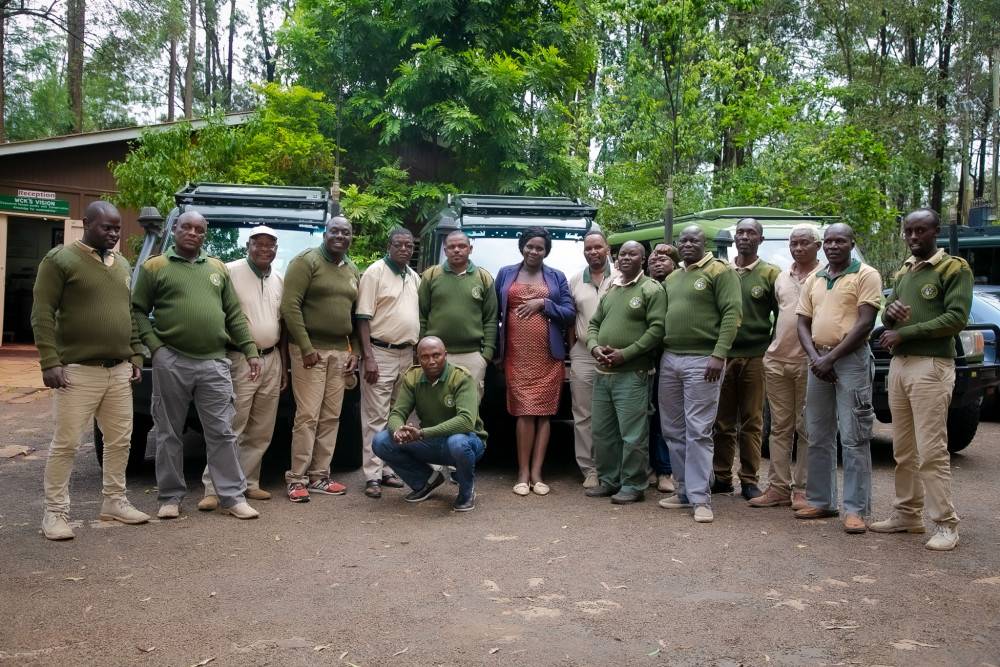To enjoy a stress-free trip to Mombasa Kenya, it is essential to consider the safety and security. Here are some essential points to keep in mind:
1. General Security
Stay up-to-date: Make sure to be up to date with the latest local news, and also any travel warnings that are issued by your country.
Register at Your Embassy.
2. Health Precautions
Vaccinations. Be sure you are up-todate with your routine vaccinations.
Mombasa is a place with a high malaria incidence. Use insect repellent and antimalarial medicines, sleep under mosquitonets, and wear long-sleeved clothing in the evening.
Water and Food Security Food Security: Drink bottled, boiling or cooked water. Avoid the use of ice. Be wary of street food.
3. Personal Security
Avoid walking on your own after darkness. Stay in areas that are well lit and well-populated. Avoid walking on beaches after dark or in secluded areas.
Protect Your Assets from Vandalism Hotel safes are a great way to keep cash, passports, and other important items. Do not display expensive items such as electronics or jewelry.
Make sure you use reputable transportation: Select certified taxis or ride-hailing companies. Hotel staff can also arrange transport. Beware of taxis that are not marked.
4. Local Laws and Customs
Respect local culture: Dress modestly, especially when you visit religious sites. Be aware of local customs and beliefs.
Drug Laws: Kenya has strict drug laws with harsh penalties. Avoid illegal drugs.
Photographers must always seek permission prior to taking photos of individuals, military or government structures, particularly in rural areas.
5. Beach Safety and Water Safety
Safety in Swimming Be aware of local guidelines regarding the conditions of swimming and currents. Make sure you are in designated swimming areas.
Marine Wildlife: Be aware of marine animals such as jellyfish and sea urchins. If you're walking along the beach, make sure to wear shoes that are comfortable.
6. Crime Prevention
Petty Crimes: Pickpocketing bag theft and other minor crime can occur in crowded areas. Keep your belongings close and stay vigilant.
Scams: Be cautious of strangers offering help that seems too generous or offers that are too tempting to be real. Make sure to use only tour operators that are licensed.
Emergency Contacts: Be familiar with emergency numbers in your area, including Fire (999), Ambulance (999) and Police (999). The contact information of the embassy or Consulate of your country is required to be easily accessible.
7. Natural Hazards
Weather: Mombasa's climate is tropical and can cause massive rains or flooding especially in the rainy months (April-June) and in October-November. Weather forecasts are vital.
Sun Protection: Keep yourself safe from sunburns and heat exhaustion by wearing hats, using sunscreen and staying hydrated.
8. Travel Insurance
Comprehensive Coverage: Make sure your travel insurance is covered for medical emergencies as along with theft, loss and disruptions to travel. Verify the coverage of your insurance policy for sports like water sports.
You'll be able to enjoy your time in Mombasa with peace of mind if you keep these security and safety tips in mind. Take a look at the top kenya holiday packages for website examples including trips to kenya safari, kenya safari holiday, safari mombasa kenya, tours & safaris, kenya travel packages, tour and travel company, kenya safari and beach packages, mombasa packages, beach in mombasa, holiday packages mombasa and more.

What Are The Culture Sensitivity Issues I Need To Be Aware Of While On Holiday In Mombasa Kenya?
When holidaying in Mombasa, Kenya, being sensitive to the local culture is vital for ensuring respectful interactions with local people and to enrich your trip experience. Here are some essential considerations.
1. Be respectful of local dress codes.
Mombasa is home to a large Muslim community. You should dress modestly in public areas, at the mosque or even your neighborhood. Dressing your shoulders, chest and knees is acceptable.
Beachwear: While swimming attire is permitted at the beach but it is recommended to dress in layers if you are leaving the area, or going to nearby restaurants and shops.
2. Religious Sensitivity
Visiting Mosques. You must ask permission to enter the mosque before and then dress modestly. Women must cover their heads and all visitors should take off their shoes prior to entering.
Prayer Times: It is important to know the five times for prayer each day and be respectful when you are praying, particularly in the vicinity of an Islamic mosque.
3. Photography Etiquette
Permission: Before taking pictures of anyone, make sure you get permission from them. This is crucial in rural areas or settings that have traditional values. Certain people might be uncomfortable or believe it's an invasion.
Restricted Areas: Do not take photos of sensitive locations such as military structures, government buildings and other cultural sites where photography is not permitted.
4. Social Interactions
It's important to greet others with respect. Swahili is a language that has a greeting known as "Jambo", or "Hello". Handshakes are normal, however when greeting Muslim women, it's respectful to wait until they extend their hands first, or simply greet verbally.
Respect your privacy. Be careful of any physical contact.
5. Taboos, cultural norms, and Taboos
Shows of affection in public Avoid public displays of affection as they are considered inappropriate.
The Left Hand should not be utilized. Make use of your right hand when eating, greeting or exchanging items or money.
Feet: Showing your feet or pointing someone with your feet is considered rude.
6. Language and Communication
Basic Swahili. Knowing a few Swahili fundamental phrases could go a very great way to build rapport with locals, and also giving them respect. Some other phrases that are commonly used include "Asante", (thank you) and "Habari", (how are you?). ).
Politeness: Be polite and patient in your communications. Kenyans appreciate respectful and courteous interactions.
7. Respect Local Customs
Traditional practices: Be respectful of the traditional rituals and practices. You should follow your host's instructions if you're invited to a local event.
Bargaining: Bargaining is a common practice in markets and local shops, but it should be done respectfully and with a sense of humor. It's a custom of the community and not a threatening one.
8. Alcohol and Smoking
There is alcohol available to drink but it should be done so in a discrete manner. Avoid drinking in public.
Smoking is usually not permitted in public spaces. You can find designated smoking areas.
9. Environmental Respect
Beware of littering and dispose of waste properly. Be respectful of wildlife and natural habitats.
Conservation: Encourage conservation by protecting the local environment and wildlife. Beware of buying products that are made from endangered species.
10. Helping Local Communities
Local Businesses: Help local markets, businesses and artisans to support the local economy.
Responsible Tourism: Participate in responsible tourism by selecting eco-friendly and community-based tourism options which benefit the local populations.
You can increase your understanding of the local culture by following these guidelines to be sensitive to culture. See the most popular Sgr transfer to Mombasa Airport for website tips including mombasa beach kenya, mombasa tour companies, mombasa beach kenya, kenya tour operator, kenya tourism, kenya beach mombasa, trips to kenya, kenya travel packages, safari trips in africa, tours safari africa and more.

What Financial Planning Considerations Do I Have To Consider When I Travel In Mombasa Kenya?
When holidaying in Mombasa, Kenya, careful budgeting can to ensure a pleasant and easy journey. Here are a few key financial guidelines to keep in mind:
1. Budgeting
Accommodation: Plan ahead and research the accommodations you will be staying in. Prices will be influenced by the type of lodging and the location.
Transportation: Include the cost of flights, transportation costs (taxis matatus tuktuks car rentals) and other excursions.
Spend a budget for dining out for meals, snacks and other occasions. The price of dining out can vary from local restaurants which are less expensive to high-end, expensive eateries.
Admission fees to attractions, guided tours and activities like safaris, water sports, or cultural tours.
2. Rates of exchange and currency
Kenyan Shillings (KES) is the currency used in Kenya. Be familiar with the exchange rate.
Currency Exchange: Exchange currency at reputable banks, exchange bureaus, or in your hotel. Avoid exchanging money on the street.
ATMs: Mombasa has many ATMs. Make sure your card is compatible with international withdrawals and be aware of any charges.
3. Payment Methods
Cash: Keep a small amount of cash on you for small purchases, tipping, and other places that don't take credit cards.
The majority of credit cards can be used in hotels, restaurants and larger stores. Inform your bank of your travel plans in order to prevent your card from being blocked.
M-Pesa Mobile payments is widely utilized by Kenyans. This is a great option for local SIM cards.
4. How to save money
Travel off-season. When you travel in the off-season, or shoulder season (April to October and November to April), you can save money on hotel rooms, flights and other travel costs.
Make sure to book early for the best prices on airfare and accommodations.
Local Eateries: Eat at local eateries and food stalls to enjoy a more authentic and budget-friendly experience.
5. Tipping
Tipping is customary in Kenya. In restaurants, a 10 percent tip is the norm in the event that the service isn't included. Tip hotel staff, guides and drivers at your discretion.
Small tips will always be appreciated. For instance, you can tip the porters KES 50-100 a bag and the housekeepers KES100 per day.
6. Emergency Funds
Reserve funds: Have an emergency cash reserve in your wallet and ensure you can access additional funds through a credit or debit card.
Travel Insurance: Purchase a complete travel insurance that covers medical emergencies as well as cancellations of trips and loss or theft of personal items.
7. Security
Protect your valuables by using hotel safes. Keep passports, additional money, and other important items in the hotel safe. When you use ATMs in the dark, be extra cautious.
Avoid carrying large sums. Don't carry huge amounts with you. Separate your cash and credit cards into two separate locations: inside your wallet, and another safe location.
8. Local Transactions
Bargaining is common on local markets. Be respectful and have good humor. It is important to get a fair price.
Keep receipts or records of major transactions. Budget tracking and disputes may be benefited from this.
9. Understanding Fees
The bank you use may charge a fee for international withdrawals. Some ATMs may charge a fee when using foreign credit cards.
Costs of Currency Conversion - Be aware of the charges that your bank may charge you for currency conversion if you are using your debit or credit card overseas.
You can enjoy a stress-free holiday in Mombasa by directing your finances efficiently. View the top kenya day tours for site info including tour company, kenya tours, kenya mombasa holiday packages, mombasa safari packages, mombasa safaris kenya, tour mombasa, travel tour companies, kenya safari holiday packages, safari mombasa kenya, african safari tours and more.
